Armenia’s mourning: The collapse of Bashar al-Assad’s rule A costly miscalculation
The radical and rapid change of power in Syria, the flight of longtime president Bashar al-Assad with his family, and the unexpectedly swift collapse of the Syrian army—these are all topics that continue to dominate the leading global media outlets. Journalists, politicians, and political scientists are offering various explanations for what happened and making predictions about Syria’s future. However, they all agree that the main losers from the fall of Bashar al-Assad's regime are Iran and Russia. But they are not the only ones. Armenia should also be added to this list, and there are many reasons for this.
As we reported earlier, Armenia is deeply affected by the rapid and, for many, unexpected fall of Bashar al-Assad’s regime in Syria. Pro-Pashinyan public pages have become so hysterical in their pro-Assad stance that they have once again exposed their fascist nature. For example, the well-known channel "Infoteka 24" posted the following: "Uzbeks, Tajiks, Chechens, and other terrorists in Latakia. The national composition of the 'Syrian opposition' is highly questionable." As we can see, Armenian pro-government resources immediately labeled entire peoples—Uzbeks, Tajiks, Chechens—as terrorists. However, what is surprising about this? Nationalism and an anti-Islamic essence are evident in Armenian society and the state, and pro-government Telegram channels are no exception.
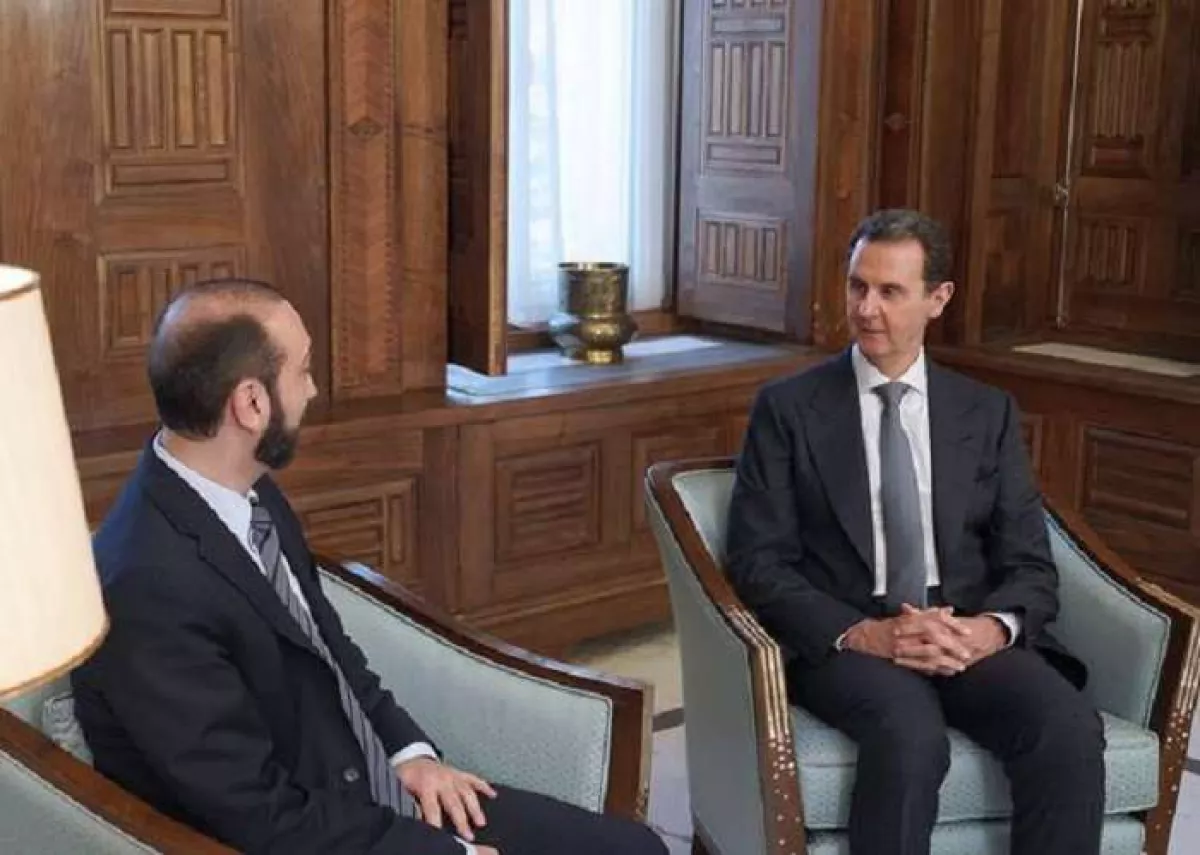
Indeed, the rapid changes in Syria have adversely affected both Armenia as a state and the Armenian community. Let’s start with the latter. At the beginning of the Syrian war in 2011, it is estimated that around 100,000 Armenians lived in the country, most of them concentrated in Aleppo (approximately 60,000), Damascus (around 6,000–7,000), Latakia, and other regions (more than 30,000 people). According to recent data, the Armenian population in Syria now stands at around 30,000, with the majority residing in Aleppo.
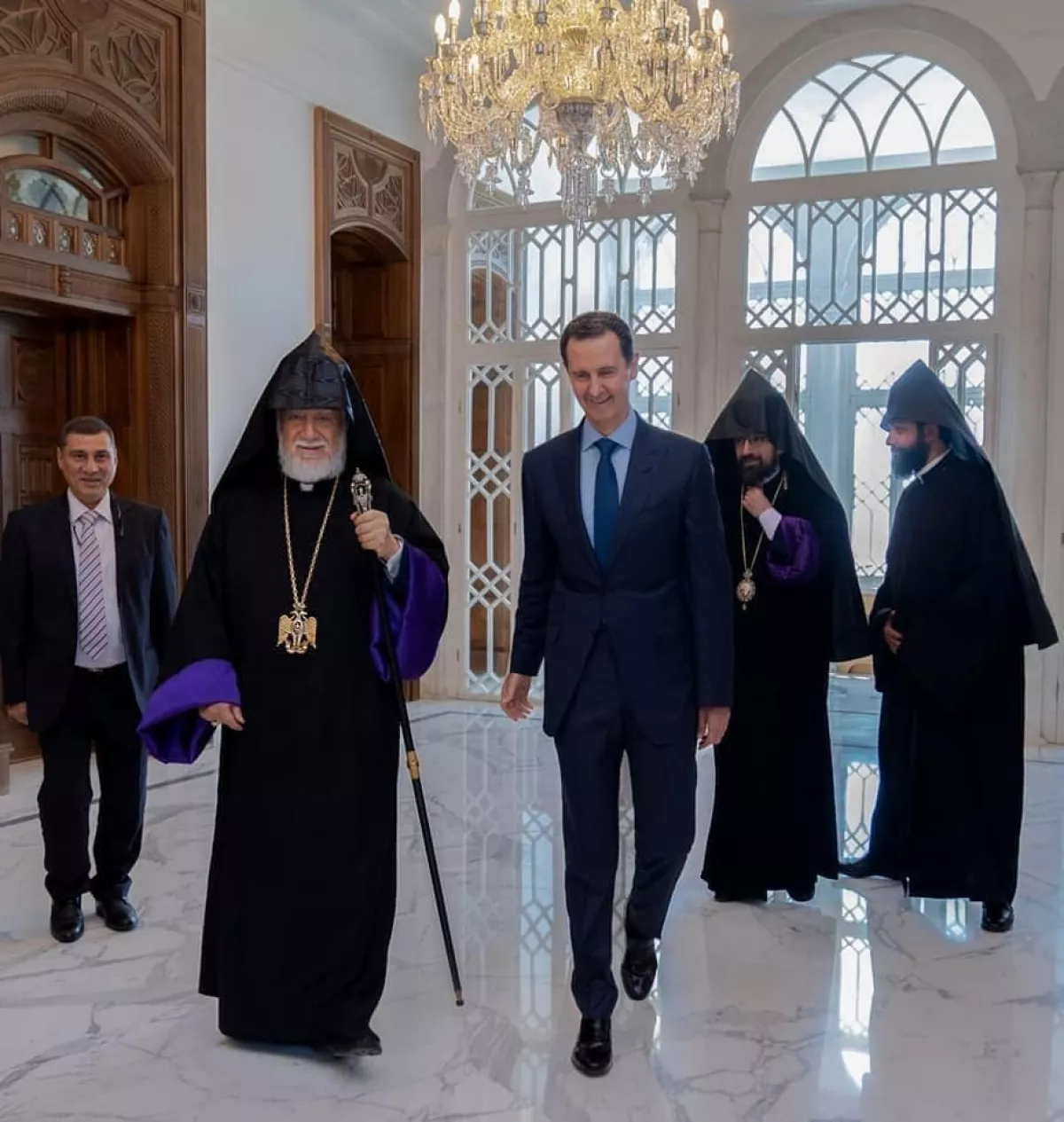
Interestingly, the first President of Armenia, Levon Ter-Petrosyan, was born in Aleppo, and his father, Hakob Ter-Petrosyan, was one of the founders of the Communist Party of Syria and Lebanon. In addition, the local branches of traditional Armenian parties—the Armenian Revolutionary Federation (ARF) "Dashnaktsutyun" and the Social Democrat Hunchakian Party (SDHP)—operate in Syria. Both of these parties have a distinctly terrorist past. Members of these parties have repeatedly carried out attacks against Turkish diplomats. Moreover, they spearheaded a wave of terrorist acts across various European cities aimed at pressuring the world to recognize the so-called "Armenian genocide."
These parties thrived in Assad's Syria. For instance, they had their own quota for representation in the Syrian People's Council (parliament). During the parliamentary elections on July 15, Maria Gabrielyan secured a mandate under this quota as the sole candidate representing the Armenian community. Her election was congratulated by Ishkhan Saghatelyan, a representative of the ARF "Dashnaktsutyun" Supreme Body, who emphasized that Gabrielyan is a fellow party member.
Another detail: in 2022, the Social Democrat Hunchakian Party (SDHP) celebrated its 135th anniversary, and Armenian Prime Minister Nikol Pashinyan sent his congratulations. He emphasized the party’s "priceless contribution to preserving Armenian identity and strengthening the Armenia-Artsakh-Diaspora connection." Remarkably, this happened after Armenia's defeat in the 44-day war and Pashinyan's signing of the Trilateral Statement. Despite these realities, he extended such provocative congratulations to a party with an openly terrorist history, continuing to reference the mythical "Artsakh."
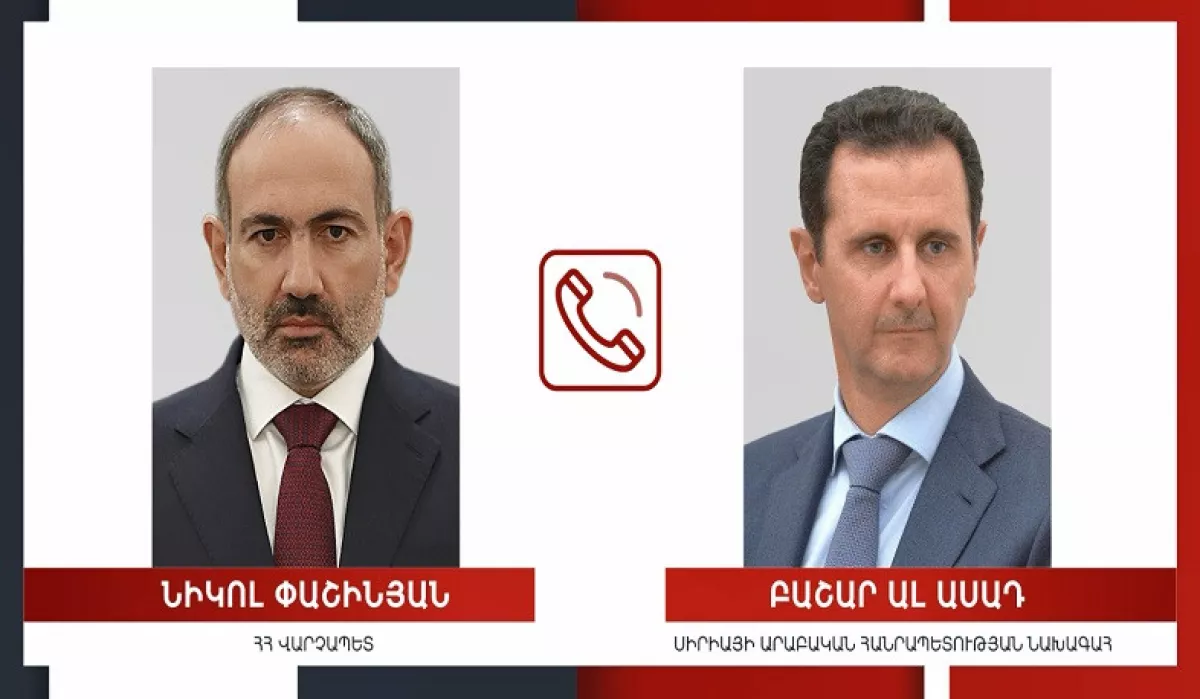
Furthermore, in April of both last year and this year, Pashinyan sent congratulatory messages to President Bashar al-Assad on the occasion of Syria’s Independence Day. This is a reminder of Armenia’s military involvement in Aleppo. In 2019, Pashinyan deployed a contingent of 83 personnel to Syria, officially for demining purposes. In reality, this unit supported Assad’s regime, aiding Syrian army operations and bolstering the regime’s legitimacy.
Close ties with the ousted Syrian dictator weren’t limited to Pashinyan. Recently, Samvel Farmanyan, the former spokesperson for Armenia’s third president, Serzh Sargsyan, recalled an episode from Sargsyan’s meeting with Bashar al-Assad. On social media, he shared details of their conversation, which took place in June 2009 in Yerevan.
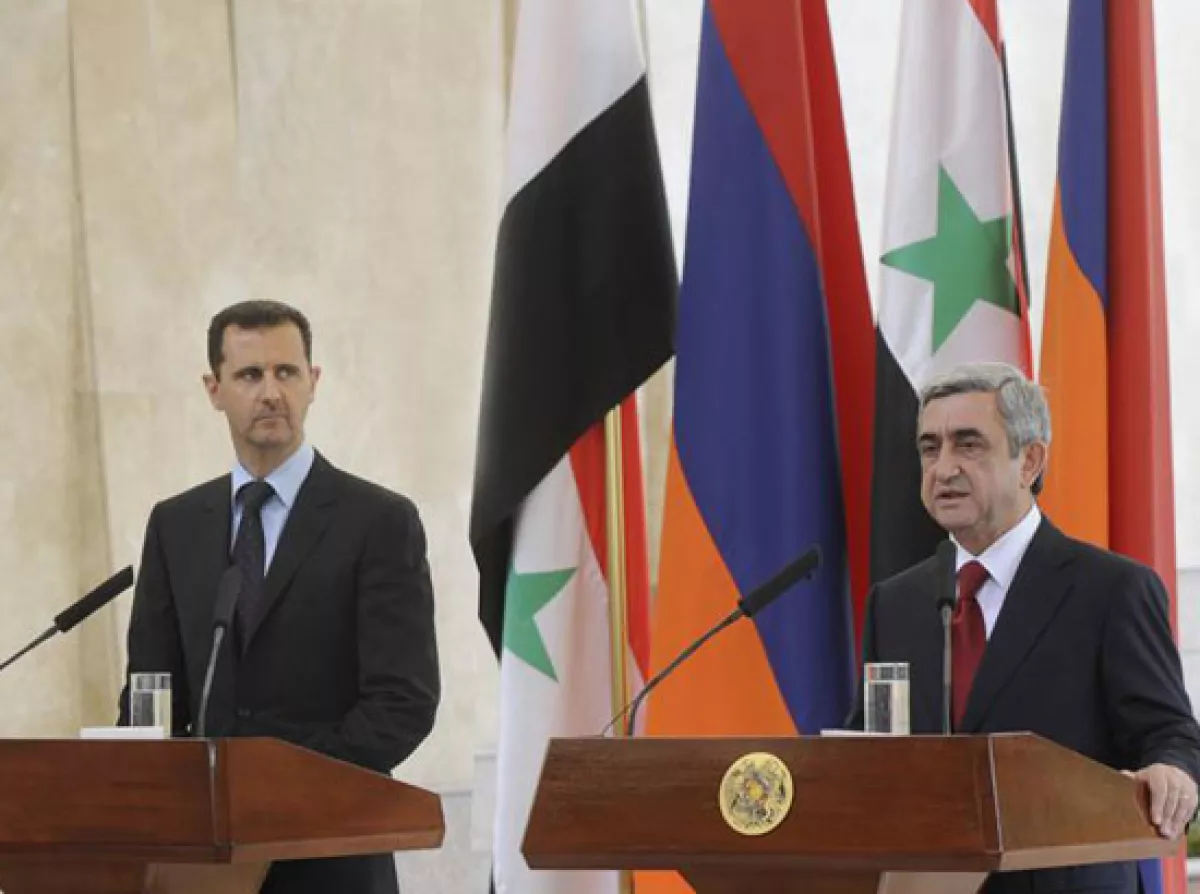
At the time, Bashar al-Assad spoke of reconciliation with Ankara and the Turkish policy of "zero problems with neighbors," proposed by then-Foreign Minister Ahmet Davutoğlu. According to Farmanyan, Serzh Sargsyan replied: "You don't know the Turks well. Time will tell, and we will judge by the results." In 2014, Farmanyan, then a deputy, led a parliamentary delegation to Damascus. He recalls that Syria was already in the grip of civil war and chaos. The Armenian delegation met with Assad, who, at the end of the meeting, confessed: "I remember our conversation in Yerevan very well. Please tell Mr. President he was right—we didn’t know the Turks well." This reveals that Sargsyan, a former Karabakh separatist and Armenia’s third president, shared not just professional but also friendly and trusting relations with Assad.
Furthermore, during Assad’s 2009 visit to Yerevan, the Catholicos of All Armenians, Karekin II, awarded him the highest honor of the Armenian Church—the Cross of St. George. According to a statement from Etchmiadzin, the award was given to the Syrian president for his support of Armenians, Armenia, and the development of bilateral relations. Karekin II declared that the Armenian people would never forget the historic support Syria provided to Armenians during the events of 1915.
It is unsurprising that Assad’s Syria consistently took a pro-Armenian stance and opposed Azerbaijan. To counter Azerbaijan and Türkiye, Assad supported India over Pakistan on the Kashmir issue. Furthermore, he backed separatists in the Caucasus, including Abkhazia and South Ossetia. Notably, within the Organization of Islamic Cooperation (OIC), Assad's Syria acted against Azerbaijan's interests, attempted to block resolutions concerning Armenia, and refrained from endorsing adopted documents.
A key example of this stance occurred during the March 14, 2008 vote at the United Nations General Assembly on Azerbaijan's resolution "The Situation in the Occupied Territories of Azerbaijan." Syria (alongside Iran) adopted a covert strategy by abstaining from the vote, effectively supporting Armenia's occupation policy.
But that wasn’t the end of it. Bashar al-Assad personally engaged in disinformation campaigns against Azerbaijan during the 44-day war, claiming that "fighters from Syria participated in the war on Azerbaijan's side." This was a baseless and primitive lie. Azerbaijan did not even deploy all its combat-ready forces during the war. Our country relied on its well-trained reserve forces, eager to engage but ultimately unnecessary for securing victory.
Why did Bashar al-Assad resort to such falsehoods? The answer lies in his unwavering pro-Armenian orientation, to the extent of disseminating crude anti-Azerbaijani propaganda.
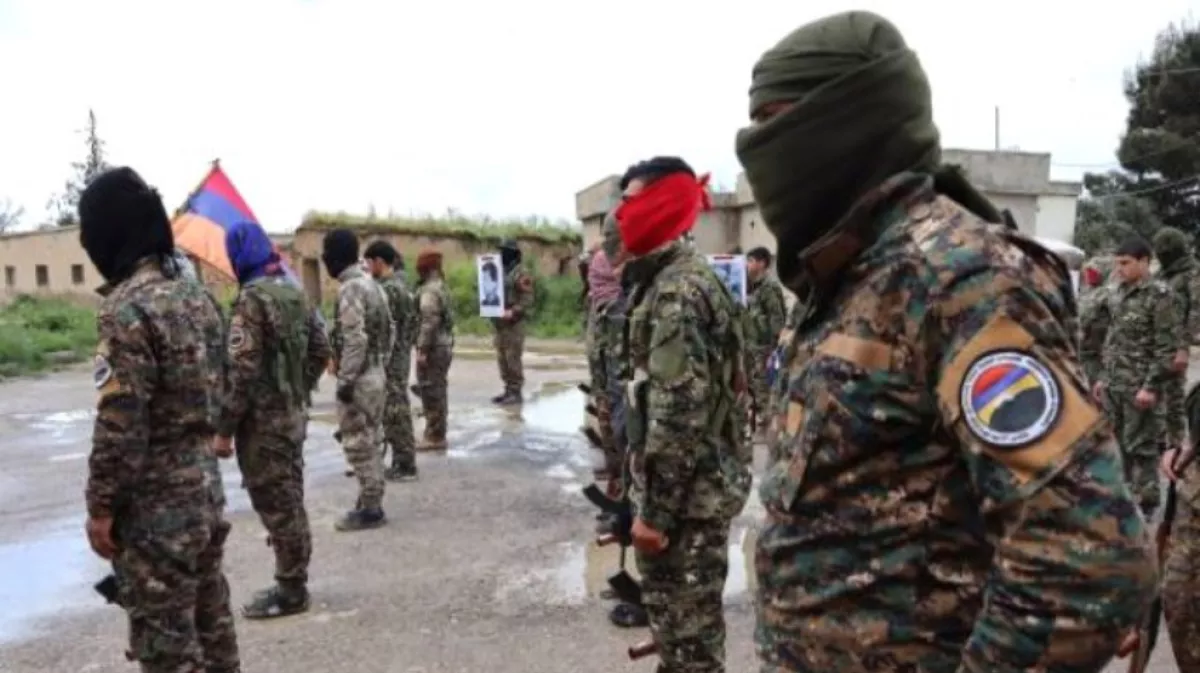
The truth is that in 2019, the terrorist Nubar Ozanyan Brigade, named after the YPG militant Nubar Ozanyan, publicly expressed its support for Armenians following Azerbaijan's anti-terrorist operations in Karabakh. This group, connected with the intelligence services of Syria and Armenia, openly threatened Azerbaijan and declared that it would act harshly and uncompromisingly against the country.
Nubar Ozanyan, in July 2015, was a prominent figure in the International Freedom Battalion (IFB) in Syria. He trained Armenian, Arab, Palestinian, Greek, Canadian, Belgian, and French foreign terrorists who were members of the IFB. Additionally, in 1991–1992, Ozanyan operated in Karabakh, where he participated in terrorist activities during the conflict against Azerbaijan.
This is the kind of group Bashar al-Assad shielded and supported. This is the true cost of the rhetoric surrounding the "Western" and "democratic" orientation of Pashinyan's Armenia—nothing but a bluff. Throughout the years of war in Syria, official Yerevan and the Armenian lobby worldwide provided political and military support to Assad’s regime. Yet, even that could not save him.
Today, we see two strikingly similar politicians—Pashinyan and Assad. Both exemplify deceit, duplicity, hypocrisy, and feigned peacefulness, alongside their poorly concealed Turkophobia and Azerbaijani animosity. It is precisely for these reasons that sorrow and despair now dominate in Armenia and across the global Armenian diaspora following the collapse of Bashar al-Assad’s regime.








